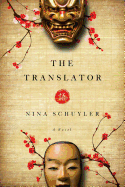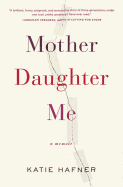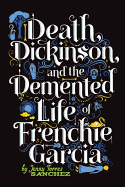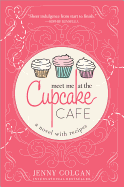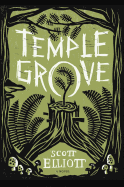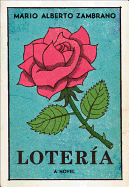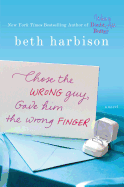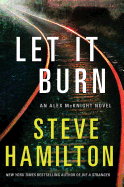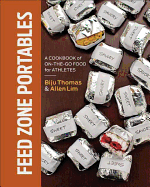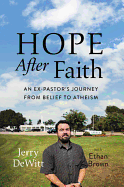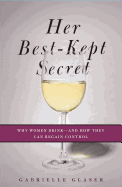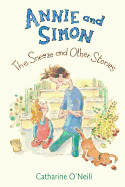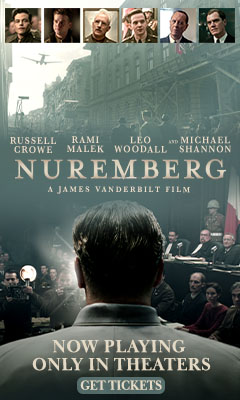Tuesday, July 9, 2013
Summer's barely begun, but the fall books are filling our office. Winnowing them down to just a few columns is difficult (and forgetting some standouts is a given). But here we start, in the first of four segments, with obvious and not-so obvious standouts:
Bleeding Edge by Thomas Pynchon (Penguin Press, September 17). Manhattan's Silicon Alley in 2011. Swindlers. A female fraud investigator. A wild novel.
Boxers & Saints boxed set by Gene Luen Yang (First Second, September 10). Two graphic novels, two sides of the same story--the Boxer Rebellion in China--from a master of the form.
Burial Rites by Hannah Kent (Little, Brown, September 10). A stunning mystery set in Iceland in the early 1800s, based on the true story of the last woman executed there for murder.
 By the Rivers of Water: A Nineteenth Century Atlantic Odyssey by Erskine Clarke (Basic Books, October 8). A young American missionary couple sailed to Liberia in 1832, pursuing a utopian dream. They return to a United States on the verge of dis-uniting, and have to make a terrible decision.
By the Rivers of Water: A Nineteenth Century Atlantic Odyssey by Erskine Clarke (Basic Books, October 8). A young American missionary couple sailed to Liberia in 1832, pursuing a utopian dream. They return to a United States on the verge of dis-uniting, and have to make a terrible decision.
Dirty Love by Andre Dubus III (Norton, October 7). Four linked novellas about love, disappointment and the desire for connection.
The Dark Path: A Memoir by David Schickler (Riverhead, September 12). A dazzling account of Schickler's life of longing after a mystical God and passion for women. He feels called to the priesthood; he feels called to relationships. He boxes with God.
Death of the Black-Haired Girl by Robert Stone (Houghton Mifflin Harcourt, November 12). A prominent professor at an elite college is having an affair with a student. He decides to end it. In Stone's hands, the story is unpredictable and compelling.
Doctor Sleep by Stephen King (Scribner, September 24). The sequel to The Shining, with Dan (the boy) now middle-aged, and a 12-year-old girl he has to protect from a tribe of murderous quasi-immortals. --Marilyn Dahl
The Translator
by Nina Schuyler
In Nina Schuyler's matryoshka-like The Translator, Hanne Schubert literally falls from grace due to her myopic approach to life and art. Hanne's tumble down a flight of stairs robs her of English, her native tongue, mysteriously leaving her with Japanese as her sole mode of speech. When Hanne comes to Tokyo to lecture on the art of translation, she is denounced as a fraud by the Japanese novelist whose work she lovingly and painstakingly translated. Hanne's subsequent escape to Kurashiki, a walled city with quaint Edo-period architecture, slowly restores her to health. This exile/rebirth also helps her to acknowledge her mistranslated text and her own estranged daughter--whose delicate sensibility she had cruelly, deliberately misread.
The Translator deftly illustrates literary translation as both a temporal (hence flawed) effort and a ceaseless drive to bridge time and space. The fact that there may be multiple translations for any given work means there is no perfect translation. Hanne's lesson in fidelity to the written word, and to her daughter's worldview, demands the willingness to transcend herself. Hanne must efface herself in order to understand, or "to come across" (i.e., translate) another reality. Schuyler's references to Noh theater, with its myriad of masks, are an apt comparison to translation as a Dionysian act of being outside oneself and yet at once with the world. --Thuy Dinh, editor, Da Mau magazine
Discover: An elegant, poetic meditation on the art of translation, ultimately reflecting the search for compassionate meaning in the world.
Meet Me at the Cupcake Café: A Novel with Recipes
by Jenny Colgan
Issy Randall, almost 32, suffers the loss of her job and her boyfriend (who was her boss) on the same day. Despondent, she hangs around in her pajamas for a few weeks until her flatmate, Helena, makes her get out and start looking for work. Instead of finding another office job, though, Issy decides to take a leap of faith and start a cupcake shop.
She was raised by her baker grandfather and has always loved working in the kitchen and baking gifts for her friends and coworkers. Going from making cupcakes at home to running a business of her own is a big leap, however, and Issy will need the help of Helena, her new friend Pearl from unemployment training, and Austin, her amazingly cute banker.
Jenny Colgan's Meet Me at the Cupcake Café is a sweet story of love and new beginnings. Colgan (Welcome to Rosie Hopkins' Sweetshop of Dreams) does an excellent job of taking standard chick-lit tropes and making them fun again. Interspersed between the chapters are recipes, some written by Issy's grandfather, others by Issy herself. Ranging from "Orange Cupcakes with Marmalade Icing for a Grumpy Day" to "Brandy and Horlicks Get Well Cake," the recipes will leave your mouth watering. Meet Me at the Cupcake Café is a book to buy and read for the fun story, then keep around as a cookbook! --Jessica Howard, blogger at Quirky Bookworm
Discover: A sweet story of love, new beginnings--and cupcakes.
Temple Grove
by Scott Elliott
In Temple Grove,Scott Elliot (Coiled in the Heart) considers the Olympic Peninsula and its human and nonhuman inhabitants with nuance. A young Native American woman, ambivalent toward her two-month-old son, hikes along a lovely river. Eighteen years later, that son, Paul, hikes back into the woods to engage in what will be called eco-terrorism: spiking trees to discourage their being logged. Simultaneously, a man named Bill returns from a lengthy exile in Alaska, grateful to find work logging in the woods of his homeland. Parallel to these two men--who, like magnets, attract and repel one another--Paul's mother, Trace, ruminates on her disconnection from her husband and her son.
Paul roams the Olympic forests with his mentor, an aging environmental activist, not entirely aware of why his connection to this place is so strong. Upon his homecoming, Bill remembers (and is disturbed by) past mistakes. The only flaw in this profound and sensitive novel is a potentially upsetting and controversial resolution to one of the plot's surprises.
Human concerns are imbedded within the rhythms of nature, and the traditions of Trace's Makah tribe resonate within her and her son as in Elliot's writing. Contemplative, secretive, a novel of the earth, its people and filial relationships, Temple Grove presents a surprisingly broad cast of ordinary men and women representing all walks of life, all sharing the fact of inner conflict. --Julia Jenkins, librarian and blogger at pagesofjulia
Discover: A subtle, brooding novel of environmentalism and human complexities set in the Pacific Northwest.
Loteria
by Mario Alberto Zambrano
Loteria is a Latin American game of chance similar to bingo. Each player has a 4x4 board. Numbers and pictures are called out from 54 cards, and the first with a certain grid pattern wins--Buena! This debut novel by Mario Alberto Zambrano, a former ballet dancer, uses the loteria to shape its structure, much as Milorad Pavic and Italo Calvino created novelistic forms based on Tarot cards.
Here, the cards' dealer--and our narrator--is an 11-year-old girl, Luz Maria Castillo, who came to the U.S. from Mexico with her family: "We all fought. We all hit each other." She's alone in a center for children. The image on each card dealt (La Arara, La Chalupa) stimulates her to write something in simple and direct language in her journal. She won't talk to anyone, not to Aunt Tencha or the social worker, Julia. She writes to God: "What I write is for You and me and no one else." Luz uses some Spanish as she writes, frequently referencing Spanish-language TV shows and movies.
As the days pass, her story and her family's takes shape. Her sister Estrella is in the ICU, her father in jail, her mother has disappeared. At the story's heart is a mystery--something terrible happened--to be slowly revealed as each card is turned over, image by image, word by word. This is a smart and powerful tale, beautifully rendered by a sensitive artist. --Tom Lavoie, former publisher
Discover: A young Mexican girl's poignant story unfolds in words and pictures as she slowly turns the loteria cards and takes her chances.
Chose the Wrong Guy, Gave Him the Wrong Finger
by Beth Harbison
Love and its many complications have become the hallmarks of Beth Harbison's cleverly titled novels. In Chose the Wrong Guy, Gave Him the Wrong Finger, she sets up a love triangle that's sure to please fans of entertaining, lighthearted women's fiction.
Small-town girl Quinn Barton had every intention of marrying her high school sweetheart, Burke Morrison. Moments before she is to walk down the aisle, however, her future brother-in-law, Frank, pulls the 21-year-old bride aside and announces that Burke, his brother, has been cheating on her. Quinn, appalled, calls off the wedding and has a short-lived rebound relationship with Frank that ultimately fizzles. The boys depart their Middleburg, Va., hometown, while Quinn stays behind, married to her job running a local bridal shop.
A decade later, Burke and Frank's eccentric 82-year-old grandmother decides to marry again, and she hires Quinn to make her wedding gown. Might this be a scheme to lure the boys back to town? When they arrive for the ceremony and to tie up loose ends on the family farm, Quinn realizes the story of the Morrison brothers, and the depth of her feelings for them, is not really over--and vice-versa.
Harbison (When in Doubt, Add Butter) has once again created an endearing, humorous story with laugh-out-loud twists and turns. The interior intimacy of her witty, first-person narration leads readers on a well-balanced, romantic journey from true love to heartbreak--and back again. --Kathleen Gerard, blogger at Reading Between the Lines
Discover: A single woman is forced to come to terms with two brothers who broke her heart 10 years earlier.
Mystery & Thriller
Let It Burn: An Alex McKnight Novel
by Steve Hamilton
In Steve Hamilton's nine novels celebrating the isolation of Michigan's Upper Peninsula, Alex McKnight has criss-crossed the Lake Superior shoreline from the Keweenaw Peninsula to the Soo Locks. When McKnight's marriage fell apart and a bust gone bad killed his partner and left a bullet in his chest, he took disability retirement from the Detroit Police Department and moved to Whitefish Bay, rebuilding a group of tourist cabins with the help of Vinnie Red Sky Leblanc, an Ojibwe casino dealer.
When the isolation and 10-month winters get to him, McKnight goes to the Glasgow Inn for a real brewed-in-Canada Molson and owner Jackie's home-made beef stew. Now and then, a local crime pulls him out of "retirement."
In Let It Burn, McKnight is drawn back to Detroit. Twenty years after confessing to the brutal murder of a wealthy white woman in an abandoned railroad station, Darryl King is getting parole. Something about the easy confession seemed wrong to McKnight at the time, but the political pressure to put someone away led to a quick conviction. With King back on the streets, possibly looking to get even with the cop who put him away, McKnight is compelled to take another look at the case.
Hamilton's previous McKnight books were steeped in the lonely ethos of the "U.P.," but he may be even more successful in his rendering of today's broken Detroit as we follow the tenacious McKnight past boarded-up mansions, railroad bridges covered in graffiti and trash-strewn yards. It doesn't make a pretty picture, but Let It Burn may be Hamilton's best novel yet. --Bruce Jacobs
Discover: Edgar Award-winning Hamilton's detective hero leaves his familiar Upper Peninsula cabin to re-investigate a murder he "solved" 20 years ago in what is now the shambles of Detroit.
Food & Wine
Feed Zone Portables: A Cookbook of On-the-Go Food for Athletes
by Allen Lim and Biju Thomas
Those familiar with 2011's Feed Zone Cookbook already know Biju Thomas and Allen Lim's followup is intended for a specific audience: elite athletes, primarily cyclists, who want to know what to eat for optimal performance and when to eat it. Feed Zone Portables shows how this can be done "on the go"--on the back of a bike or while performing other endurance sports--without resorting to bars or gels.
In a foreword, two-time Olympic cyclist Taylor Phinney explains that burning 5,000 calories a day while racing requires portable "real food" that can make as much difference as the training itself. Then Thomas and Lim explain how to calculate the calories burned during exercise (according to intensity, duration and efficiency), and how to eat to replace them. The section on why liquid calories are not optimal for our intestines includes easy-to-understand nutritional tables that compare their recipes to prepackaged foods.
The strength of Feed Zone Portables is the recipes, from rice cakes (including red lentil and raspberry mint) to two-bite pies (such as black bean & peanut mole and golden beet & chicken pot pie). Many recipes include common foods found in most kitchens (pizza rolls, baked pasta, etc.), but a list of what every athlete's pantry should contain is included as well as tips on packaging "portables" for on-the-go consumption. Although intended for elite athletes, Feed Zone Portables would be a great gift for busy parents as well. --Kristen Galles, blogger at Book Club Classics
Discover: Though intended for athletes, these recipes are so healthy and practical anyone too busy to sit down to eat would benefit from them.
Biography & Memoir
Mother Daughter Me
by Katie Hafner
In a burst of optimism, Katie Hafner proposed a new living arrrangement to her octogenarian mother, Helen, and 15-year-old daughter: the three generations could share a house. Six months into their cohabitation, the experiment was declared a failure. Mother Daughter Me recounts the family history that doomed the setup as well as charting the highs and lows of their time under the same roof.
Hafner's childhood was colored by her parents' divorce and by Helen's subsequent binge drinking and neglect, but the two had achieved détente. By the time Helen needed to downsize, Hafner had been widowed eight years and enjoyed a close relationship with her teenage daughter, Zoe. The three agreed that opening Katie and Zoe's San Francisco home to Helen would offer them a chance to become a loving extended family.
While Hafner (The Well, A Romance on Three Legs) does not resort to the cliché "sandwich generation," she does describe times when she was literally between Zoe and Helen--and while Zoe is kind and bright, and Helen beautiful and brilliant, both lay emotional claim to Hafner. She cites research on alcoholism and the effects of divorce on children, and recollects scenes from her parents' and grandparents' marriages that led to emotional damage for both Helen and Katie.
It's not all frustration, though, as the three find love, humor and renewed understanding of their family dynamic. It's a credit to them all that, without self-pity, Hafner shares their story of three generations that tried, but failed, to find peace under one roof. --Cheryl Krocker McKeon, bookseller, Book Passage, San Francisco
Discover: Hafner, her mother and her daughter unsuccessfully attempt to make a home together, but learn about themselves in the process.
Hope After Faith: An Ex-Pastor's Journey From Belief to Atheism
by Jerry DeWitt
For many, it's tough to imagine being fired from your job and divorced by your wife just for questioning the existence of the Lord. It happened to Jerry DeWitt, though--he lost everything the night he lost his faith. In Hope After Faith, a memoir written with the help of Ethan Brown, DeWitt chronicles how he went from praying for hours on end, speaking in tongues and idolizing Billy Graham to the conviction that there is no God.
As you read, it may strike you DeWitt isn't the easiest guy to like. He filches change from the communion plate to buy himself Cokes, he hides in his car for two weeks to avoid his detested day job in sales (even though he and his family are in dire financial straits) and involves his long-suffering wife and child in the Gospel Assembly Church, Des Moines, Iowa--a sect that made DeWitt question his faith so much that they ultimately fled in the dead of night. DeWitt never attended seminary; one wonders his evangelical and pastoral failures played a role in his shift to atheism.
But that's just gravy on this chicken-fried steak of a memoir. DeWitt's imperfections only make for a more authentic and compelling read as he traces his journey from nearly fanatic Christian to doubting atheist. And the slice-of-life look at religious life in rural Louisiana he provides can be only described as fascinating. Whether one disagrees with DeWitt's stance or finds oneself nodding along, Hope After Faith is a richly detailed, nakedly honest story that will resonate with many. --Natalie Papailiou, author of the blog MILF: Mother I'd Like to Friend
Discover: An ex-pastor's wild journey from praising the Lord with all his might to embracing atheism.
Psychology & Self-Help
Her Best-Kept Secret: Why Women Drink--And How They Can Regain Control
by Gabrielle Glaser
In Her Best-Kept Secret, Gabrielle Glaser (Stranger to the Tribe) traces the evolution of women's relationship to alcohol from the earliest days of the Puritans, when drinking beer was considered safer than water, through the effects of Prohibition to the present day, when "female consumers [are buying] two-thirds of wine in the United States" thanks to concerted efforts to market wine to women beginning in the 1960s. Now, Glaser writes, women are using and abusing alcohol in greater numbers than ever: "Alcohol is an acceptable, legal way to muscle through the postfeminist, breadwinning, or stay-at-home life women lead."
Alcohol, we've been told, combats stress, depression and menopausal symptoms; women see drinking as a rite of passage into adulthood. Alcohol-related accidents and binge drinking, especially in older women, are on the rise, as is the number of women in treatment programs. Glaser provides valuable information on the effectiveness of Alcoholics Anonymous, a program developed by men and geared toward men, for women alcoholics. She reveals a disturbing history of sexual abuse in A.A. by members who prey on new initiates--the apocryphal "13th step" of getting sexually involved with another recovering alcoholic frequently results in harassment or rape. Glaser offers stories of women who have successfully dealt with their alcoholism through alternative, private programs as well.
"We're never going back to Prohibition," Glaser concedes, but with the help of her insightful and thought-provoking investigation into women and their relationship to alcohol, readers gain a deeper appreciation for the benefits and drawbacks of drinking. --Lee E. Cart, freelance writer and book reviewer
Discover: An informative investigation into why women drink and the effects of alcohol on their health and social lives.
Children's & Young Adult
Death, Dickinson, and the Demented Life of Frenchie Garcia
by Jenny Torres Sanchez
Is there anything a person can do to stop it when someone is planning his suicide? This question haunts Frenchie Garcia, the narrator of this honest, ultimately hopeful novel.
After a years-long crush on popular Andy Cooper, Frenchie gets to spend "one cool night" with him (platonic, but a true adventure) during their senior year, before she wakes up to learn he committed suicide after they parted. Now it's summer, and Frenchie feels isolated from her friends and family. Her best friend, Joel, is obsessed with his girlfriend, Lily, and the bright future of her band called Sugar ("Of course, because that's exactly the kind of name someone like Lily would name it"). She doesn't get into art school, dashing her parents' dreams for her ("It's kind of like they want me to save the world, using art. No pressure or anything"). And she hates her hometown of Orlando, Fla. ("Florida isn't so much the Sunshine State as it is a crematorium").
Sanchez (The Downside of Being Charlie) gets her heroine's tough exterior and vulnerable insides in just the right balance. As Frenchie tries to make sense of Andy's suicide, her sole confidante is the Emily Dickinson buried in a nearby cemetery (not the poet herself). Only by walking through the events of that night, with someone who knows nothing of her past, does Frenchie begin to make peace with Andy's death. Sanchez provides a healing salve for teens who may know someone who has committed suicide, and also a strong testament against it. --Jennifer M. Brown, children's editor, Shelf Awareness
Discover: A memorable narrator with a tough exterior who must come to terms with the suicide of her longtime crush.
Annie and Simon: The Sneeze and Other Stories
by Catharine O'Neill
Four self-contained chapters in this liberally illustrated transitional reader continue the sibling adventures begun with Annie and Simon.
The book starts with a humorous and informative chapter ("Living Things") set during a morning at Pickerel Lake. Annie's "big, big brother" Simon searches for creatures through his binoculars, while Annie sees a splash right in front of her. She thinks it's a frog, and picks up her crayon to draw one. Their spottings and Annie's drawings lead to Simon sharing facts about frogs, crayfish (when it loses a claw, "a new one grows back in its place") and other living things. In "The Sneeze," Annie offers to read Simon a story about a girl who has her appendix out and "all her friends bring her flowers" (the yellow-and-black illustrations hint at Bemelmans's Madeline); Annie worries that Simon is catching a cold after he sneezes repeatedly. In a charming turn-of-events characteristic of the stories' endings, Annie confesses, "I can't really read yet," so Simon reads the book to her. In the third story, "Hazel, Hazel, Hazel," young readers learn about many of the differences between cats and dogs, when the neighbor's Gray Cat visits their yard; and in the last story, how squirrels prepare for winter.
Catharine O'Neill conveys the affection between the siblings and their dachshund, Hazel, through her warm watercolor illustrations. Pictures that bleed into two pages show Annie's environment, while vignettes convey her strong mutual bond to Hazel and to Simon. Here's to further adventures from this winsome family. --Jennifer M. Brown, children's editor, Shelf Awareness
Discover: The further adventures of two siblings and their dog, Hazel, in which Annie learn some things about her world.
| Advertisement nuremberg--now playing in theaters |


